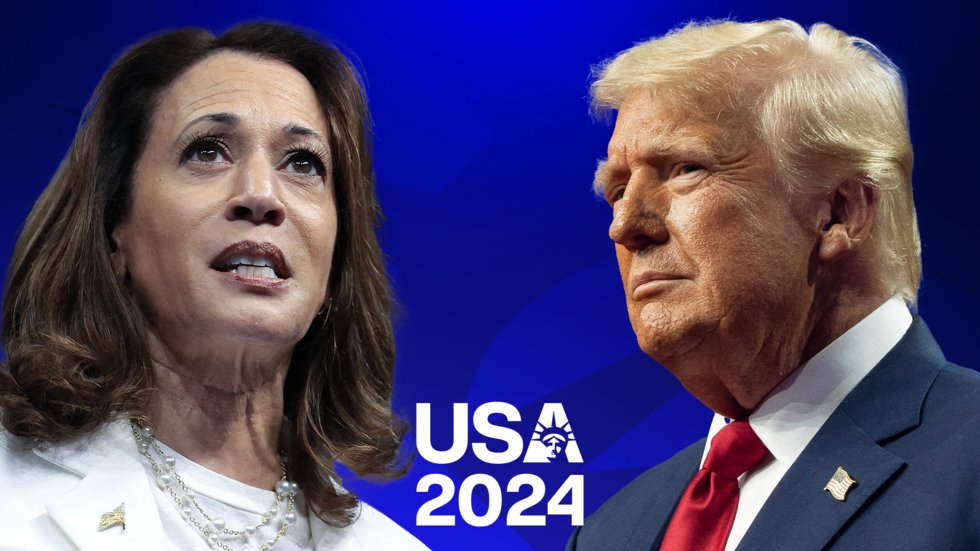The U.S. presidential elections are always defined by major issues that dominate the political landscape. In 2016, immigration was the defining debate. In 2020, the COVID-19 pandemic shaped the election. Now, in 2024, a surprising topic is taking center stage: childbirth and women’s choices over their bodies.
Last night’s presidential debate featured the usual subjects like the economy, foreign policy, and immigration. Yet, one issue sparked intense controversy—abortion. Kamala Harris delivered an impassioned defense of a woman’s right to choose, recounting troubling medical scenarios and placing the blame squarely on Donald Trump for creating a hostile environment for women. Trump fired back, denying Harris’s claims and stating his support for exceptions to abortion laws in cases of rape, incest, or if the mother’s life is at risk.
However, the debate quickly broadened from abortion to a larger issue: how society views a woman’s body and her choices about having children. Harris strongly asserted that no government, and certainly not Donald Trump, should dictate what women do with their bodies. This statement struck a chord with many, underscoring a wider societal debate about motherhood and a woman’s autonomy.
Taylor Swift’s Take on the Debate
Shortly after the debate, Taylor Swift chimed in with a social media post that instantly went viral. Swift, long an advocate for women’s rights, posted a picture with the caption, “Signed, a childless cat lady,” a direct response to remarks made by J.D. Vance, Trump’s running mate, who had earlier criticized childless women. Swift’s defiant embrace of the label sent ripples through the political landscape, sparking a fresh wave of discourse on how society pressures women to have children.
But the story didn’t end there. Elon Musk, the tech mogul known for his provocative comments, responded to Swift on Twitter (now X) with an offer that left many stunned. “Okay, Taylor, you win. I’ll give you a child and guard your cats with my life,” Musk tweeted. The comment, which some viewed as flippant and condescending, raised uncomfortable questions about men’s entitlement to women’s reproductive choices.
Elon Musk and the Politics of Childbirth
Musk’s comment was especially jarring given his personal history. The billionaire has fathered 12 known children, and his views on population growth and birth rates have frequently stirred controversy. He has often warned of a so-called “population collapse” and once quipped that he was “doing his part” to ensure the future of humanity. Yet, his personal life—marked by multiple custody battles and strained relationships—adds a layer of irony to his statements.
This episode reveals a troubling trend: powerful men like Musk, J.D. Vance, and Trump inserting themselves into discussions about women’s bodies and childbirth, often with little regard for the complexities of women’s experiences. Musk’s offhanded comment to Swift illustrated how even deeply personal decisions like whether or not to have children can become fodder for public discourse and political games.
Childbirth as a Political Issue
The politicization of childbirth and reproductive rights is not new. Donald Trump, during the debate, indicated that he would consider supporting a national abortion ban—a statement that set off alarm bells among pro-choice advocates. Meanwhile, Joe Biden, a Catholic who has historically struggled with the issue of abortion, has had to adapt his stance over the years to align with the Democratic Party’s pro-choice platform, despite his personal discomfort with the subject.
The debate over reproductive rights isn’t limited to the U.S. France recently moved to enshrine abortion rights in its constitution, but critics argue that Emmanuel Macron did so more to win political favor than out of genuine conviction. Poland, on the other hand, has swung in the opposite direction, banning most abortions under a right-wing government—though there are now efforts to reverse this decision under new leadership.
Across the globe, women’s choices about their bodies, particularly regarding childbirth, continue to be subject to political manipulation and societal pressure. And it’s not just about abortion—it’s about the expectation that women will become mothers. The pressure is constant, and women who choose not to have children are often stigmatized.
The Stigma of Childlessness
The stigma surrounding childlessness is far from unique to the U.S. In 2016, during her bid for the prime ministership of the U.K., Theresa May was frequently criticized for not having children. Her opponent even suggested that being a mother gave her a “real stake in the future of our country,” as though childless women had less to offer society.
Such remarks reflect a deeply ingrained societal expectation: women are supposed to have children, and when they don’t, they are subjected to judgment and scorn. Terms like “childless cat lady” or “old maid” are used to demean women who deviate from this expectation. Meanwhile, men are largely spared from this scrutiny, even when they father multiple children with different partners, as Elon Musk has done.
Women continue to bear the brunt of societal expectations around motherhood, facing both the pressure to have children and the responsibility for raising them. Men, in contrast, can simply comment from the sidelines, with little to no repercussions for their choices or remarks.
Women’s Choices Are Not for Debate
As the 2024 election progresses, it’s clear that the question of women’s choices—whether it’s about abortion or having children—will remain a central issue. But these are personal decisions that should not be used for political gain. Society must move away from policing women’s bodies and focus instead on creating policies that genuinely support those who choose to become parents, while respecting those who do not.
Women’s bodies are not political battlegrounds. Yet, in today’s world, personal choices about motherhood are too often co-opted by politicians for their own agendas. Whether it’s Donald Trump, Elon Musk, or Joe Biden, it’s time for men in power to step back and let women make their own decisions—without the interference of the state, the church, or society at large.





